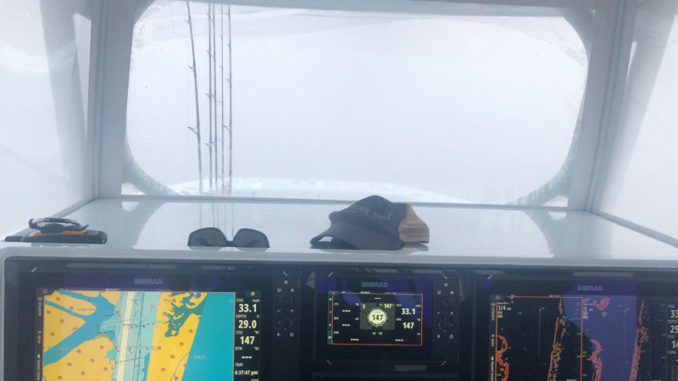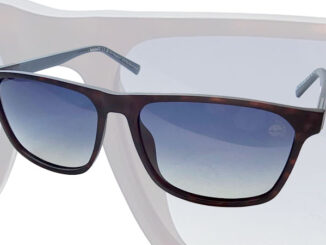
Guide shares tips for anglers heading out on Ol’ Man River
As winter gradually transitions into spring in the Midwest, and the ice and snow that gripped the region over the last several months melts away and mixes with flood waters from the heartland, a lot of that runoff eventually finds its way into the Mississippi River.
And even more than 2,000 miles downriver, that water remains pretty chilly when it finally arrives in places like Baton Rouge, New Orleans and Venice. Despite South Louisiana typically experiencing air temperatures in the 70s and maybe low 80s in late March into April, the river remains cold long after air temperatures here start making it feel like summer along the coast.
That creates the perfect setup for a serious blanket of fog to develop, as that warmer air collides with the chilled river water. And as if the Mississippi wasn’t already dangerous enough for anglers even under ideal conditions — with the presence of huge ocean-going vessels , swift currents and obstacles like logs and other debris thrown in the mix — foggy mornings make things even more difficult.
Capt. Jordan Ellis, with the Mexican Gulf Fishing Company out of Venice, said conditions have been particularly tough so far this spring. And despite recent improvement because of cooler weather here, Ellis said the fog will likely return once air temperatures warm up a bit.
“It’s been pretty nerve-racking the past couple months,” said Ellis, who regularly pilots his 37-foot Freeman, Kimmi, up and down the river out of Venice. “It hasn’t just been foggy — it’s been brutally foggy. You can’t even see the front of your bow some mornings.”
April, even into May, can make for some treacherous conditions on the river, he said.
“If someone tells you they’re comfortable running in the fog, they’re lying to you,” he said with a chuckle. “No one’s comfortable.
“You do it every day, but as soon as you get comfortable, you’re probably going to have an accident.”
Ellis shared a few tips for anglers contemplating making a trip on the river when the fog is socked in. His first suggestion seems like a no-brainer, but it’s worth repeating over and over.
“Stay at home if you don’t have radar,” he said. “It’s just a fish — it’s not worth it.”
Anglers who attempt the trip without radar are putting themselves — and lots of other people — at risk.
“What happens is, it’s not just them,” he said. “It’s dangerous enough even with radar, because you have things like logs in the river that radar doesn’t pick up. Having to worry about other boats without radar makes it even worse.”

If you do have radar and decide to head out anyway in foggy conditions, Ellis said adjusting your departure time can make things easier on you.
“I would suggest for private guys to either leave an hour before or an hour after daylight — that way you miss the brunt of the traffic,” he said. “Most of the guides are going to leave at daylight, so I always tell guys to leave an hour earlier than most people. Many of the commercial boats aren’t running then, and you miss most of the charter boats.”
Staying in radio contact — and letting others know where you are on the river — also is a big key to a safe trip.
“When you’re in any passes, you need to have your radio on channel 13,” Ellis said. “If you’re in the river, it needs to be on 67. If you’re coming out of a marina, give a shout out because you can’t see what might be coming around a corner. Any time you’re going into the river or going into a pass and you can’t see around the bend, you want to let somebody know just in case they’re coming around the other way. There might be someone coming up behind you, or somebody cutting across …”
Letting someone know where you’re heading on the radio is easy. Ellis offered an example of what he might say if he were leaving Cypress Cove Marina on a foggy morning.
“This is fishing vessel Kimmi coming out of Cypress Cove, turning into Tiger Pass headed north for the Jump,” he said. “So instead of just seeing a red dot on your radar, it helps when you get a voice and you can say, ‘OK, that’s who that is.’”
Trusting your GPS track and radar in disorienting dense fog can be tough, so Ellis recommended using and practicing with your radar before you actually need to rely on it.
“Try turning on your radar when it’s not foggy, that way you can get used to what everything looks like,” he said. “Some people just use it when they need it, which can make it even scarier.
“When you know fog season is coming and you’re running a pass, turn on your radar and familiarize yourself with it.”
Slowing down, knowing the proper rules for passing another vessel and even following another boater to the fishing grounds at a safe distance were additional fog safety tips Ellis recommended.
“The past couple of weeks haven’t been too bad because of this cooler weather, but as soon as it warms back up it’ll be foggy again. Luckily there haven’t been any major accidents that I know of, which is amazing when you think about it,” he said. “And it’s not even just boats, like I said, there’s things like logs in the river …
“I don’t want to speak too soon, but we’ll keep our fingers crossed.”


